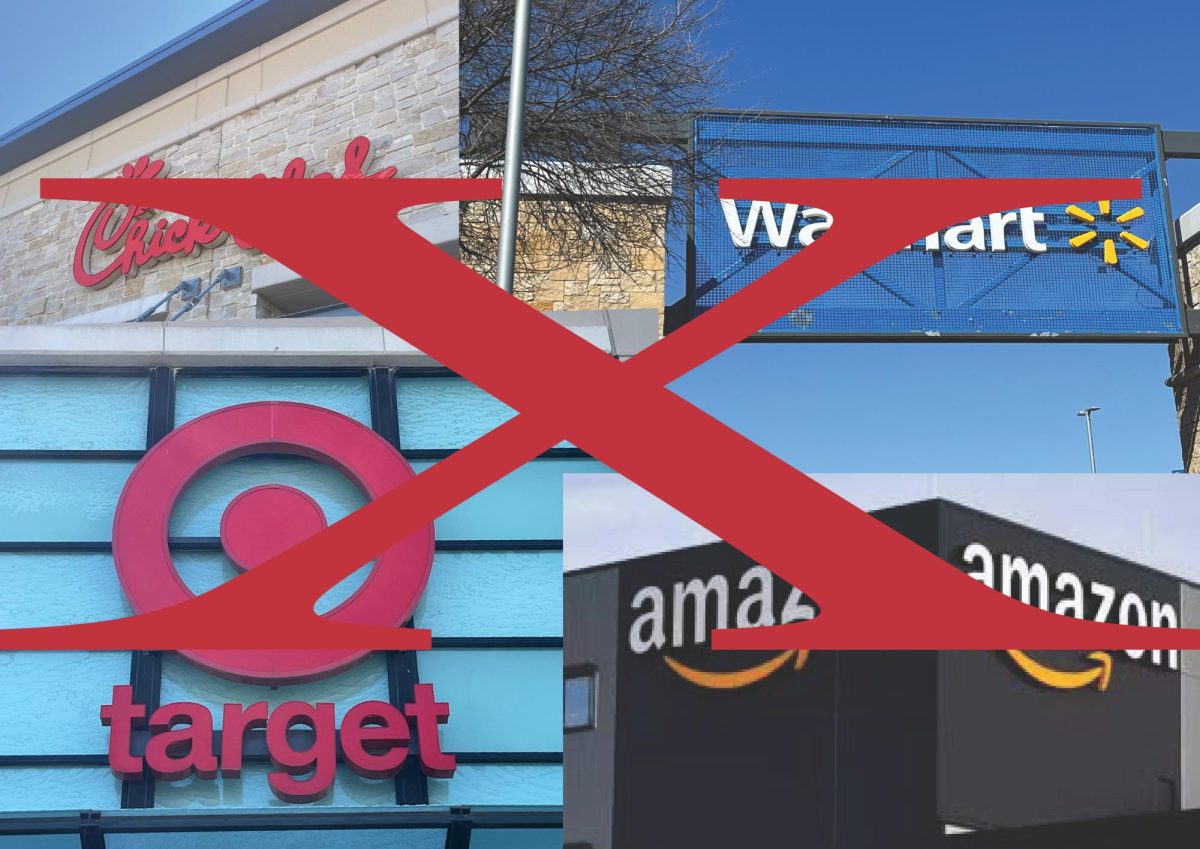The history of boycotts goes back over 50 years with the most memorable ones being the Montgomery and Tallahassee Bus Boycotts for the civil rights movement. These boycotts were in response to the racism that African Americans were dealing with in the South. In response to the DEI issues being brought up with the new presidency, younger generations have taken a similar approach, choosing to boycott businesses that have removed DEI.
On Friday, February 28th in response to President Donald Trump’s stance on diversity, equity, and inclusion (DEI) policies, a boycott took place against all businesses regarding the removal of the policies of companies across the nation. These businesses included many big names, such as Walmart, Target, Meta and McDonalds.
“The main thing with boycotts is that you’re choosing not to purchase something, usually to hurt the provider of that good or service,” AP Economics teacher Jerry Howland said “…you have an issue with maybe something about that company or what practices they’re using.”
The impact of the boycott on DEI programs and Trump’s role in their removal has sparked strong feelings across the country from groups such as the National Association for the Advancement of Colored People (NAACP). In the broader view of the economic impact of boycotts, it affects things also in terms of supply and demand which matters because it determines the prices and stock market fluctuations.
“If there’s a boycott, you’re basically reducing the number of buyers.” Howland said “So that’s going to cause demand to decrease for whatever product it is.”
This reduction in demand can have a ripple effect which can happen when a small initial disturbance in a system causes a series of outward effects. This shows in businesses when looking at potential negative effects for all the employees of these businesses which employ thousands of people, which can hurt the economy on a larger scale. If boycotts like the one that took place on the 28th continue, it may negatively impact the economy and have the opposite effect of what they are hoping to achieve.
“If it’s significant enough, it would cause some unemployment, at least definitely in the sector that’s being targeted,” Howland said.
It’s unknown whether the boycott will lead to lasting changes within businesses and society at large. The overall impact may be limited, with any meaningful sales declines more likely to surface in liberal-leaning coastal regions and big cities such as Los Angeles or New York. These boycotts not only affect businesses but minorities as well. When looking back at the 2020 boycotts related to the Black Lives Matter protests, some members of the African American community were put in an awkward position.
“I didn’t know how it would affect my friendships. A lot of my friends at the time didn’t support things like that, and I was worried they might judge or make fun of me. In the end, I do wish I participated,” junior Zuri Simiyu said.
While boycotts are hard for certain minorities, it is designed to be even harder for these corporations. It can be difficult to tell just by going inside a large corporation store such as Target or Walmart to determine whether they are struggling or not with finances due to boycotts. A better way to see this change is through stocks and their fluctuations.
“If it’s a morally wrong issue that people really care about, it can have a long-term negative impact on the stock price,” Stockbroker Thobias Akwenye said “But if it’s something that can be addressed by the company, like changing a policy or practice, then it can rebound after changes are made.”
By reducing demand for a company’s products, boycotts can force companies to adjust their practices in order to maintain profitability. The stock fluctuations of the more recent boycott on the 28th was extremely minimal because of the boycott only being one day. In some cases certain companies and sectors can be more susceptible to the effects of boycotts.
“Petroleum companies are often targeted by environmental groups and boycotted due to the clean energy initiative” Akwenye said “But overall, most companies with good standards and ethics are less vulnerable to boycotts.”
With significant controversy and genuine concern on issues that the most recent boycott was trying to address, people are left wondering what will spark the change that they want to see. For some it could be mass corporations marking up all items in the store and for others it could be issues with DEI.
“Eventually, people will realize it’s something that needs to change,” Simiyu said.





